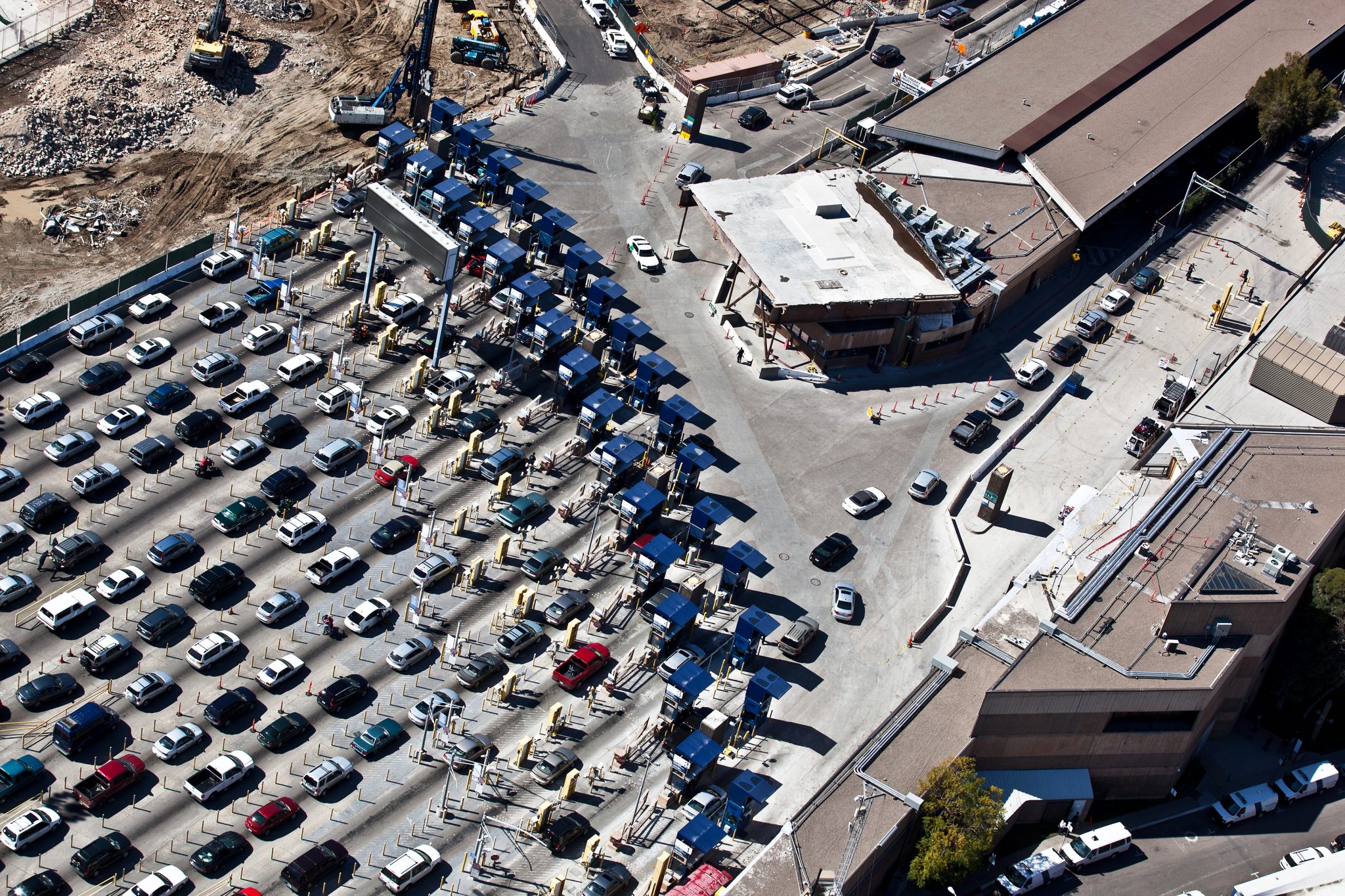When senior Alexis Allen was growing up in Chula Vista, California, border security was something that was frequently on her mind. At her school, just north of the San Ysidro border in San Diego county, 75 to 80 percent of students were Hispanic, she said – and 15 to 20 percent lived in Tijuana, Mexico, crossing the border each day to attend her high school.
“If people try that hard, that’s incredible and they should get a chance to live here,” said Allen, a television writing and production major.
Each morning, some immigrant families commute for hours to bring their children to school in the U.S., according to a June 2017 NPR podcast.
Chula Visa’s population is more than 58 percent Hispanic and Latino. President Donald Trump declared a national emergency Feb. 15 to allocate $8 billion to his proposed border wall separating the United States from Mexico.
In Allen’s town, the history associated with border security and preventing illegal immigration is prominent.
“(The town officials) had to put up a gate in the middle of (the 905 highway at the border of San Diego) in the 1980s because so many immigrants would flood over and would just run across the border,” Allen said. “They would just charge the highways and a lot of people would get killed.”
Trump declared the emergency to reduce the number of undocumented Hispanic immigrants seeking refuge in America, according to the Washington Post, often using the wall as a campaign point candidate for the 2016 presidential election. Now, his third year in office, Trump has shown his GOP supporters he intends to follow through.
John Yoo, a law professor at the University of California Berkeley and a Justice Department lawyer during the George W. Bush administration, said in June 2017 that he doesn’t like the policy but he thinks the Supreme Court will uphold the emergency declaration, according to the Washington Post.
“I don’t think we have an issue with people coming over; we have an issue with crime and those aren’t directly correlated,” Allen said. “I think the administration is probably conflating the two.”
The national emergency was declared so the government can access around $8 billion, according to NPR. In reaction to the recent events, California and 15 other states have filed to sue the federal government, arguing that Congress should decide on the government’s spending, not the president, according to USA Today.
According to ABC News, the wall has also been contested by some people who live near or in border towns, like Chula Vista.
“In the busy border crossing places there’s a lot of wall already, and we have a lot of border control,” Allen said. “(A wall) across the entire border would just be a waste of money and time.”
An anti-wall rally was led by former Congressman Beto O’Rourke (D-TX) with 7,000 people in attendance on Feb. 11 in El Paso, Texas. On the same day, Trump hosted an alternate rally in the same city with about 6,500 audience members, many of whom were wearing “Make America Great Again” hats.
For Allen, the border crisis hits close to home. One of her best friends from high school was a former undocumented immigrant. Smuggled across the border with his mother when he was 9 years old, he received his citizenship seven years later.
“These immigrants went through an ordeal to get to school … They get up at 4 a.m. every morning to try to cross,” Allen said. “They had to make sacrifices that other students do not (so) that they get an education here and get their foot in the door because they want a better life.”





